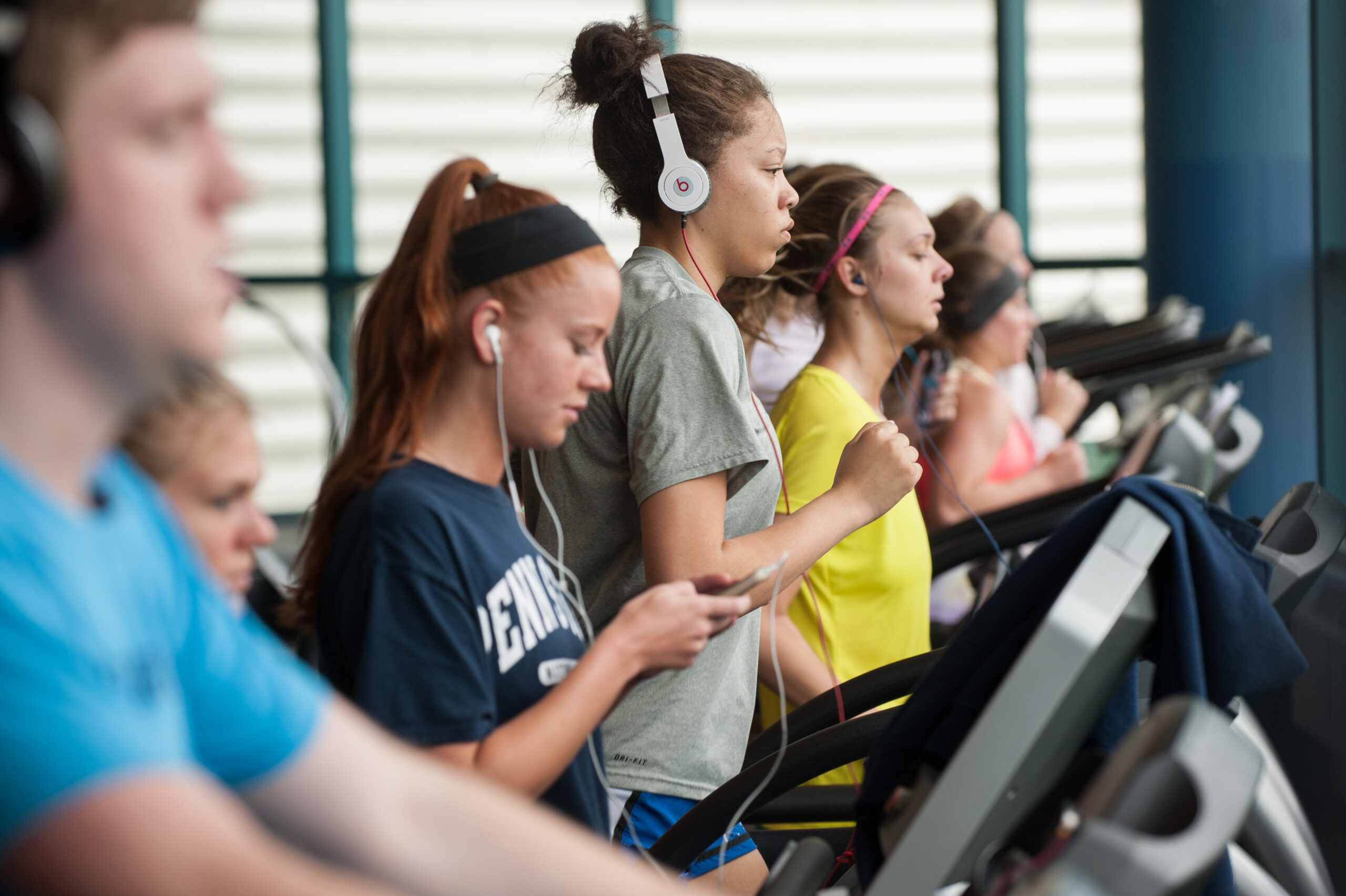MORGANTOWN — As universities reopen this fall, research conducted at West Virginia University suggests campus recreation usage by students can lead to greater retention and overall academic achievement.
The study underlines the value of campus recreation and in-person engagement in higher education, said WVU Campus Recreation Research Coordinator Sera Janson Zegre, lead author.
Between 2014 and 2017, Janson Zegre and her colleagues examined the relationship between Student Recreation Center visits and first-year retention of full-time, first-time undergraduate students. Researchers paired swipe card data with institutional data for a robust study, which findings appear in the Journal of College Student Retention: Research, Theory, and Practice.
“Our results show a positive and significant relationship between recreation facility use and retention and GPA, including 7.1-8.4 percentage points higher retention for full-time undergraduate users, who come at least once a week versus non-users,” Janson Zegre said.
Further analysis suggests the relationship between Rec Center (which is celebrating its 20th anniversary) use and retention differs across student subgroups. For example, first-generation student users had almost 11 percentage points higher retention than their non-user cohorts.
The biggest marginal differences between users and non-users were for students who were Pell Grant recipients, first-generation and had lower high-school GPAs, all factors known to contribute to dropping out.
Janson Zegre and study co-author, Director of Campus Recreation Andy Darling, believe the research findings serve not only as a highlight of the Rec Center’s first 20 years, but they offer a roadmap for campus recreation in the future.
“Our past successes engaging students in campus recreation have not seen strategic focus on specific goals like increasing student retention and eliminating barriers to participation,” Darling said. “We are changing to better serve our students and university. Recreation is changing. So are we.”
An additional internal study conducted in partnership with WVU Institutional Research found that students were two-to-three times more likely to use the Rec Center if they lived near it. Campus recreation leaders hope to fill that void by opening a fitness facility on the downtown campus in Reynolds Hall, future home of the John Chambers College of Business and Economics. The facility, a closer option for those who work and study downtown, will be open to all members of the WVU community.
The pandemic may have created hurdles for campus recreation but leaders leapt over them — providing virtual classes and activities since the Rec Center, for a large swath of 2020 and 2021, was used for COVID-19 testing and vaccinations. Now as the Rec Center re-emerges as the place for planks and pushups, researchers will hold onto some of the beneficial lessons learned remotely from the past year-and-a-half: Some people dig the online version.
“Anecdotally, some of the students we engaged with in our virtual fitness programs stated they never participated in (the) in-person classes, and never will,” Darling said. “One student said they were able to find community and that we were able to engage them.”
The initial research conducted by Janson Zegre and her colleagues focused solely on first-year students due to a national focus on student retention at higher education institutions, especially with pressure from declining enrollments and projections of national reductions in incoming students.
“On campuses nationwide, there’s always concern about the number of students who do not retain after their first year,” Janson Zegre said. “That’s a big topic in higher education in general and we’re certainly among those on West Virginia University’s campus working to address it.”
Researchers hope to follow up on the study by examining relationships further. For example, “Does regular use of campus recreation lead to higher graduation rates?” Studies into club sports and intramurals are also options on the table, as well as collaborative research across institutions.
And although the initial research focuses on first-year students, Janson Zegre and Darling said the goal is to accommodate the entire student population.
In addition to a new fitness facility downtown, campus leaders have also announced a new outdoor Fitness Court at the Evansdale Residential Complex. The fitness area also includes three sand volleyball courts and two basketball courts.
“How can we get people that come to the Rec Center once and never come back or even never get in the door to participate in campus recreation?” Darling asked. “We are here to serve everyone. WVU Campus Recreation has and will continue to expand our physical and virtual footprint to meet students’ evolving demand.”
Tweet @DominionPostWV




